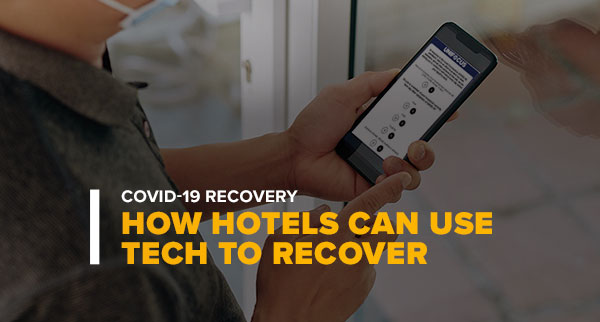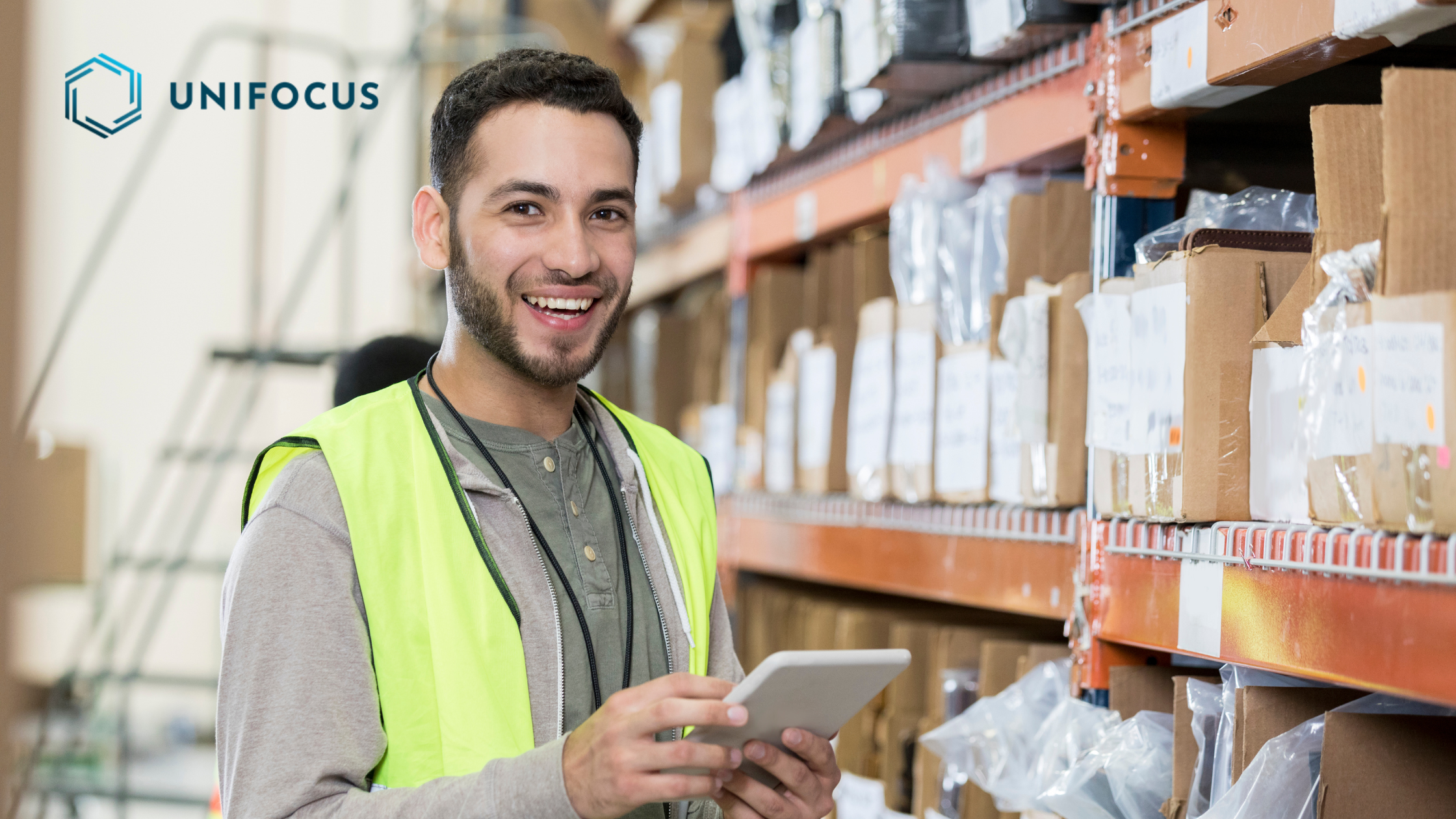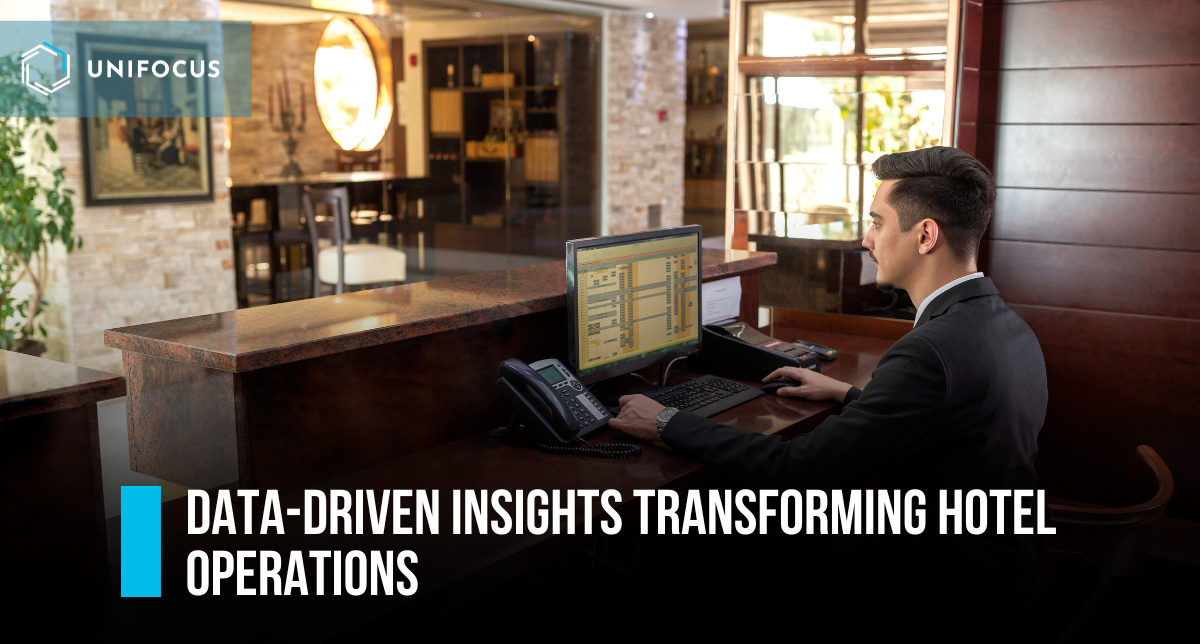August 24, 2020 - Written by Mark Heymann and Published in Hospitality Technology – There was once a time when the hospitality industry was, to some extent, considered recession-proof, even amid economic downturns or simple decreases in travel rates. And while that may be true, the last six months have proved that hospitality certainly isn’t pandemic proof.
So, hotels need to think strategically about their business operations in order to align with alleviating guest concerns. That starts with knowing what guests need to feel comfortable in the safety of the service they receive.
A digital travel impact survey conducted by UniFocus this summer, polled more than 1,150 travelers about how COVID-19 has changed their view toward service expectations. In addition to providing details on purpose of travel, travel distance, transportation and travel timelines, respondents were asked to rank various practices based on levels of importance– ranging from employees wearing masks and visibly sanitizing open surfaces to guest/employee temperature checks, touchless interactions and clean room certifications prior to arrival. The survey also inquired about the impact of restaurant service, room service, fitness center hours and spa availability on the overall guest experience.
Here were the results:
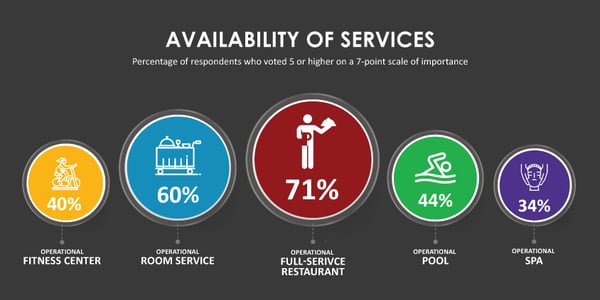
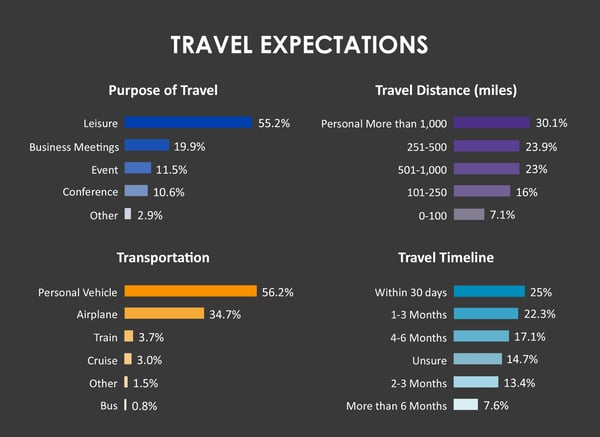
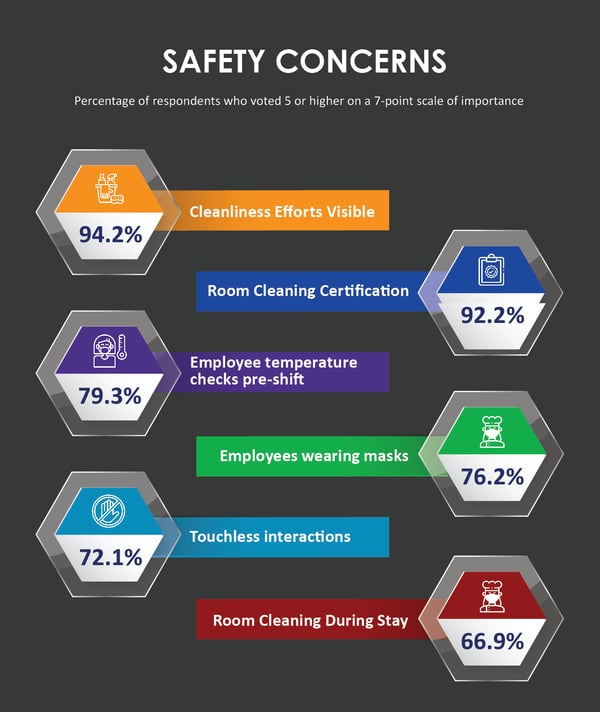
The survey found that offering some semblances of restaurant dining and operational room service are considered the two highest non-room related services. On a broader scale, respondents felt they needed to see evidence of ramped up sanitation protocols that significantly lowered their risk of infection in order to feel comfortable – such as staff-wide visible cleanliness practices, room cleaning certifications and spread-prevention measures like employees wearing masks and social distancing. These statistics reveal the need for hotels to begin navigating a new normal.
That’s where technology can play a key role.
How? Well, in-depth online and mobile surveys are a good place to begin. Like the results noted above, surveys can paint a picture of which measures customers expect, and which measures will have the greatest impact on their intent to recommend. A particular guest may want his room cleaned each day to keep everything sanitized, while another guest may prefer the opposite, thus ensuring that no one else enters her room throughout the entirety of her stay. By collecting these types of actionable insights from pre-arrival digital surveys, hotels can establish flexible COVID-19 safety practices that are tailored to the individual needs of their occupants. Measuring the relationship of desired cleanings during one’s stay can become a key input into effective staff planning.
Surveys also can play a role from a staff standpoint. Gathering periodic insights on employee safety perceptions enable operations to make changes to improve working conditions when necessary. Additionally, there are online or mobile applications that can be used to have employees rate their health upon arriving to work. If an individual staff member doesn’t meet a certain health criterion, schedules can be adjusted with management input to ensure only healthy employees are at work.
As it pertains to sanitation, technology can be used for touchless cleanings, such as vacuums that use artificial intelligence to clean specified areas or UV light scanners that screen vacant rooms and eliminate any lingering bacteria before housekeepers enter the room -- serving as an extra layer of protection that enhances cleanliness and staff safety. Another opportunity could be utilizing a digital monitoring system to confirm sanitation protocols are followed. For example, the online/mobile application would require employees to scan a QR Code after each time bathrooms are cleaned. Additionally, reminders can be sent to employees to remind them of sanitation needs throughout their shift. All in all, this approach keeps staff members accountable and heightens visual recognition of cleaning protocols in the eyes of guests.
Now, let’s look at the situation from a workforce management perspective. During the pandemic, expected occupancy and employee availability are both extremely volatile, making the concept of staffing to service levels a challenging task. However, advanced technology can serve as a major asset in that capacity. With a digital workforce optimization system, hotels can adopt flexible scheduling practices that enable on-the-fly staffing adjustments to provide quality service without understaffing or overspending on labor. If occupancy levels drop significantly from one weekend to the next, the system allows for simplified alterations to employee shift times, durations and days. If an employee calls in sick or has a last-minute obligation arise, the system can make sure their shift is covered by using artificial intelligence to contact a replacement. Overall, it eliminates the need for tedious and time-consuming manual scheduling.
Advanced technology can address the need for flexible scheduling due to childcare or other personal issues. Shift lengths can be flexed to allow for fewer days at work while still carrying full-time hours. With the latest mobile technological applications, both shift swapping and general intra-organizational communication are enhanced.
The circumstances of the pandemic are here, and how the hospitality industry responds will be a critical factor in its ability, or inability, to navigate a road to recovery. Frankly, the data doesn’t lie. By leveraging the use of advanced technology, hotels can align themselves with newfound guest expectations to significantly increase their capability to successfully navigate the COVID-19 environment.

